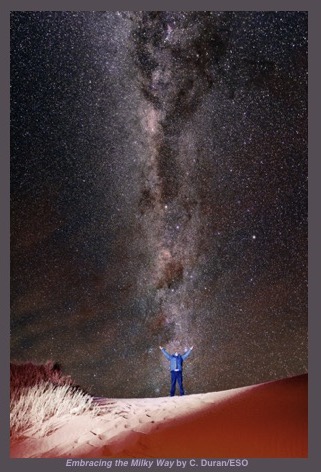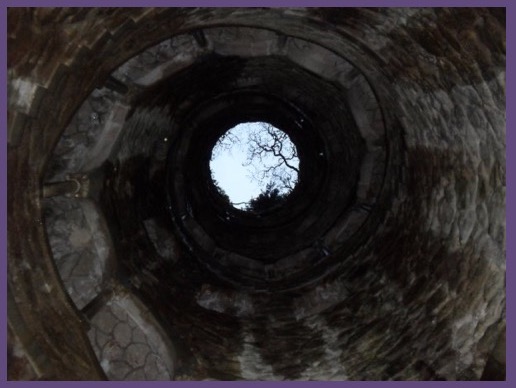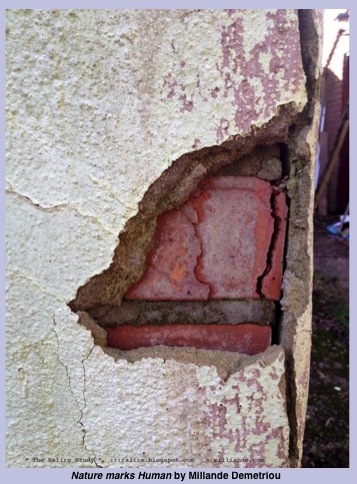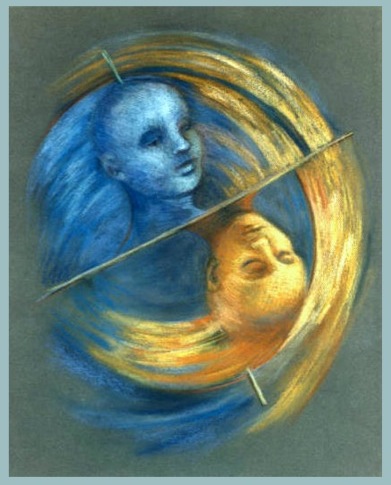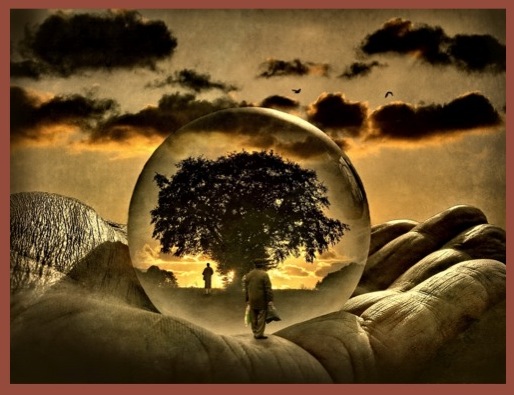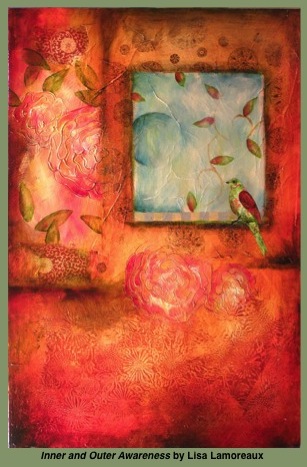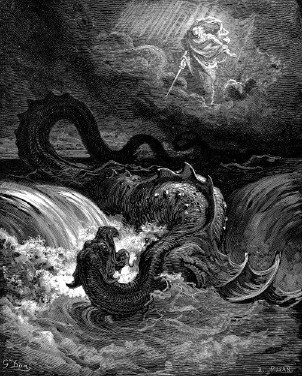 The Destruction of Leviathan by Gustave Doré
The Destruction of Leviathan by Gustave Doré
“Although we human beings have our own personal life, we are yet in large measure the representatives, the victims and promoters of a collective spirit whose years are counted in centuries. We can well think all our lives long that we are following our own noses, and may never discover that we are, for the most part, supernumeraries on the stage of the world theater. There are factors which, although we do not know them, nevertheless influence our lives, and more so if they are unconscious.â€
—Carl Jung, Memories, Dreams, Reflections, tr. Richard and Clara Winston
There are two images for this post, besides the one above, both behind a cut at the end of this post. One is called the falling man, a photograph by Richard Drew, the other is called the hanged man. I’ve put them behind a cut because even now some people don’t like looking at images from 9/11, and this image caused some controversy when first published. There’s nothing gory about it, but it does represent the last moments of a man’s life. Some feel that’s a private moment and should never be seen. I don’t discount their feelings, but I also believe it’s something more: a testament of the horrors of that day, of terrible decisions forced on ordinary people, of their courage and grace in making those choices, no matter how desperate.
All I know is that the first time I saw the image of the falling man it resonated inside me like a struck bell—beautiful, horrible, incomprehensible. Yet deeply known. In the amazing and moving documentary, 9/11: The Falling Man, made about this picture, it’s revealed that the editors of The New York Times had a series of pictures in this sequence to choose from, but found this one most compelling. I don’t think that’s a coincidence.
Of course, there’s a personal horror of recognition here. One morning you go to work and something unthinkable happens to rip everything away. This picture represents the ultimate “there but for the grace of God go I” moment. But that’s not what my deeper cord of recognition was about. This man’s death was not a symbol, but there was a potent symbol in that sky. It took me a couple of days to understand it. An image from tarot came to me: the hanged man. Not in the sense of portents in the sky or any other such bull, not to minimize the power of the falling man by reducing the image to a formula. The image is its ownself, vast and powerful, but there’s also this other thing falling beside it: archetypes working themselves through the real world and through our psyches.
This phrase about the hanging man card from aeclectic.net in particular struck me: “It is as if he’s hanging between the mundane world and the spiritual world, able to see both. It is a dazzling moment, dreamlike yet crystal clear. Connections he never understood before are made, mysteries are revealed.”
Not him, you understand, but us…suspended between life and death, the sacrifice to gain knowledge, a time of trial or meditation, the moment of clarity, of not being able to see things the same again. It’s not just this man’s life, and the ending of it, but that moment of suspension and terrible clarity for the United States and the world.
That subconscious strata of images and ideas is always at play inside each of us. I’m not in any way saying those archetypes are the only reason we respond so powerfully to the image of the falling man, but I do believe they are part of the mix. Whether or not you have ever seen a tarot deck, or this particular tarot deck, this image doesn’t exist in a vacuum. It appeared in the tarot because it was part of our culture’s archetypal and intuitive heritage. Perhaps it’s an image that would resonate only in Western culture—I don’t know enough to say otherwise—but it is part of the unconscious lives of everyone who has ever lived in the West for any length of time.
And what does it ultimately say about 9/11? Maybe that archetypes are cultural snapshots—or roadmaps—of the great moments in human existence, both specific and nonspecific, grandly sweeping and intimately personal.
Each of us is composed of both conscious and unconscious associations. We need to examine ourselves closely before leaping on any bandwagon or cause or demagoguery, committing ourselves to actions and movements that rob us of our individual and essential humanity and turn us into impulsive mobs, spurred to commit atrocities in the name of some deep, unthinking leviathan swimming just beneath the waters of consciousness. (more…)
